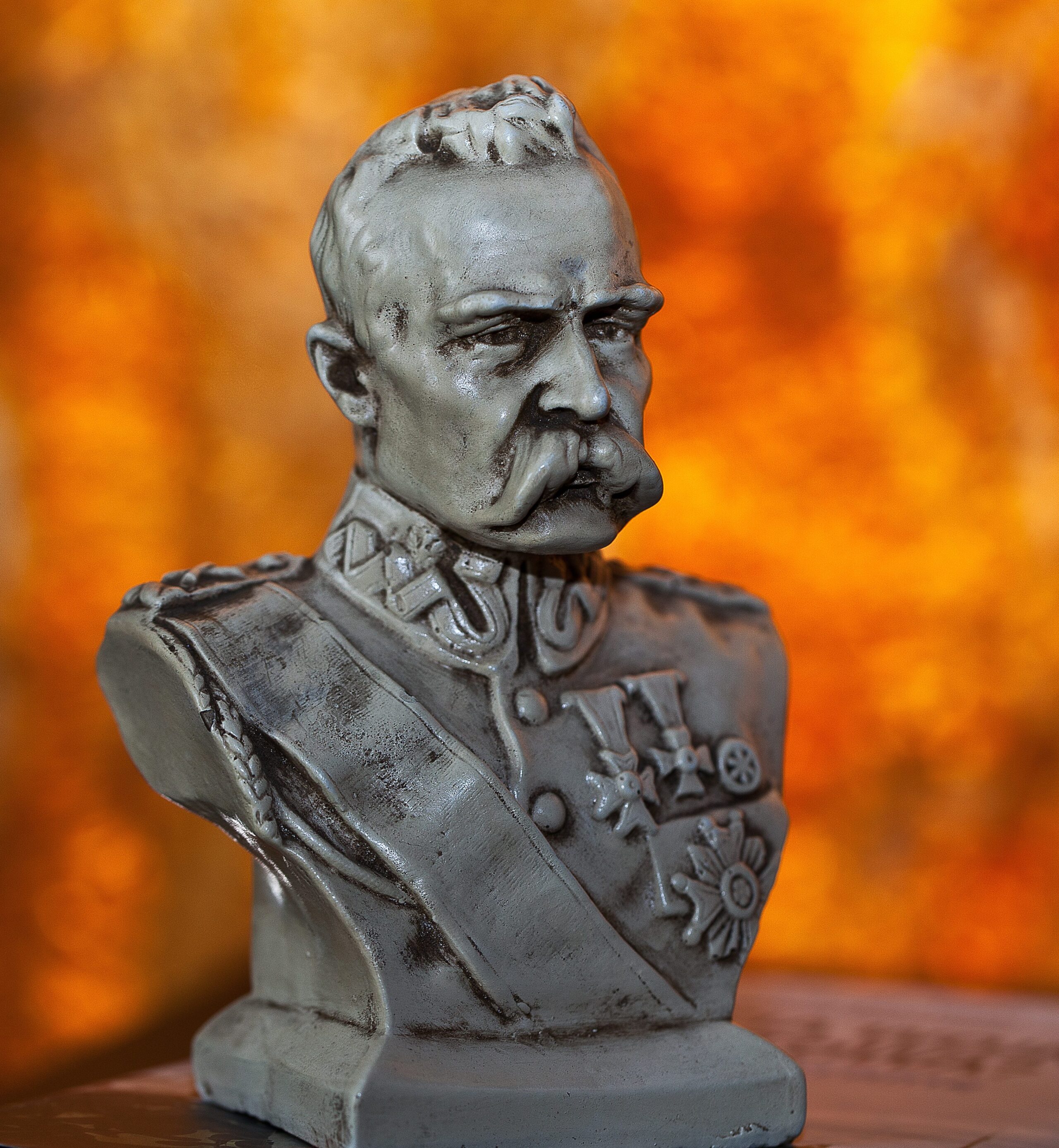Every student of the Litera Centre knows that classes take place on Piłsudski Street in the very centre of Wrocław. It is symbolic! You must agree that learning Polish and learning about culture and traditions on a street named after the founder of modern Poland is motivating. Today we will tell you interesting facts about the life of Józef Piłsudski, in whose honour a street is named not only in Wrocław, but also in Krakow and a square in Warsaw.
- Full name - Józef Klemens Ginyatowicz Kosczesza Piłsudski (1867-1935). Polish military leader, first head of the revived Polish state, founder of the Polish army, Marshal of Poland.
- Józef was born into a poor family. So needy was the family that little Jozef did not have a pair of trousers. For this reason, the boy often missed lessons. But this was not an obstacle on the way to knowledge. And Piłsudski successfully graduated from school, and then entered Kharkov University at the Faculty of Medicine.
- However, Piłsudski did not manage to get his doctor's degree. While studying at university, Józef became close to students who were fascinated by the idea of the "People's Will". He abandoned his books and became involved in underground activities. This led to constant detentions and arrests...Eventually he was suspected of organising an assassination attempt on Emperor Alexander III. Allegedly, he and his brother tried to transfer a parcel from Vilna (Józef's hometown, now Vilnius) to St. Petersburg. The parcel contained parts for a bomb, treated with poison. Of course, Józef's brother got the worst of it, while our hero received only five years of exile.
- Let's not talk about sad things, but let's tell you about love. The next fact is a romantic one. When young Jozef returned from exile he met a girl named Maria Juszkiewicz. Piłsudski fell in love with the beautiful socialist-revolutionary and offered her hand and heart. This would have been the end of the story, if not for the fact that Maria had already been married and divorced. What's the big deal, you might ask. But at that time, it was impossible to marry a divorced woman in a church. So the young couple decided to leave Catholicism and become Protestants. What won't you do for love? And on 15 July 1899 Józef and Maria were married.
- If we are talking about religion, here is the following fact. Piłsudski remained a Protestant until 1916. His return to the Catholic religion was prompted by his accession to power.
- The fickleness of the hero's views is also evidenced by the following fact. Józef was one of the brightest figures of the Polish Socialist Party (PPS). He took an active part in the work of the PPS. He published his writings in the party newspaper "Przedsvita", which made him known in the circle of revolutionaries. The year 1918 came - the year of Polish independence and a change in Piłsudski's political views. He left the PPS and switched to the side of the nationalists. And to his yesterday's comrades he says: "Comrades, I was travelling on the red tram of socialism to the stop "Independence", but at that stop I got off...".
- Although only "yesterday" Pilsudski had to hide under someone else's surname, move from town to town, and even pretend to be insane in defence of his views. By the way, Pilsudski pretended to be mentally ill when he was threatened with 10 years in prison. He realised that if he went there, he would hardly come back alive. So Józef Piłsudski pretended to be insane so that he could be sent for compulsory treatment to the St. Petersburg hospital for the mentally ill. From which he easily escaped.
- In general, Pilsudski is a lucky man. This is evidenced by our next fact. From 1918 to 1922 Józef Piłsudski headed Poland and held the title "The Head of the Polish State". And in December 1922 he was forced to resign as head of state and hand over the rule to the first president of Poland, Gabriel Narutowicz. The latter led the country for exactly 5 days. Gabriel was shot dead by a radical nationalist. At the trial, the murderer admitted that he had prepared a bullet for Pilsudski, but the latter resigned in time.
- But as they say, "Everything is for the best". After the "May Coup" in 1926, the power was back in Pilsudski's hands. He led the country until his death.
- Józef Piłsudski died in May 1935 of cancer. His body was buried in the Wawel Cathedral in Kraków. But the heart of the Marshal and founder of the modern Polish state was buried in 1936 in the grave of his mother in Vilnius (Lithuania).

